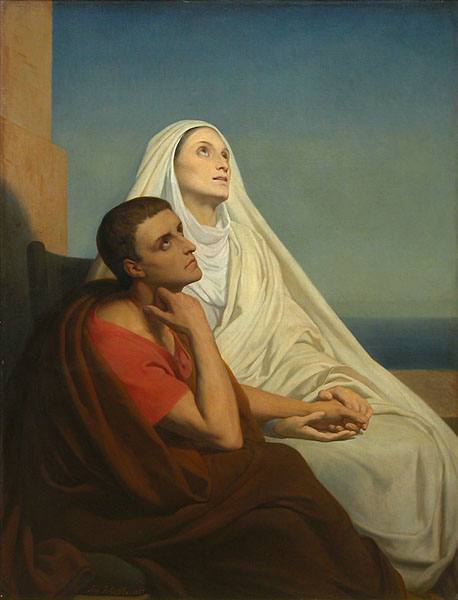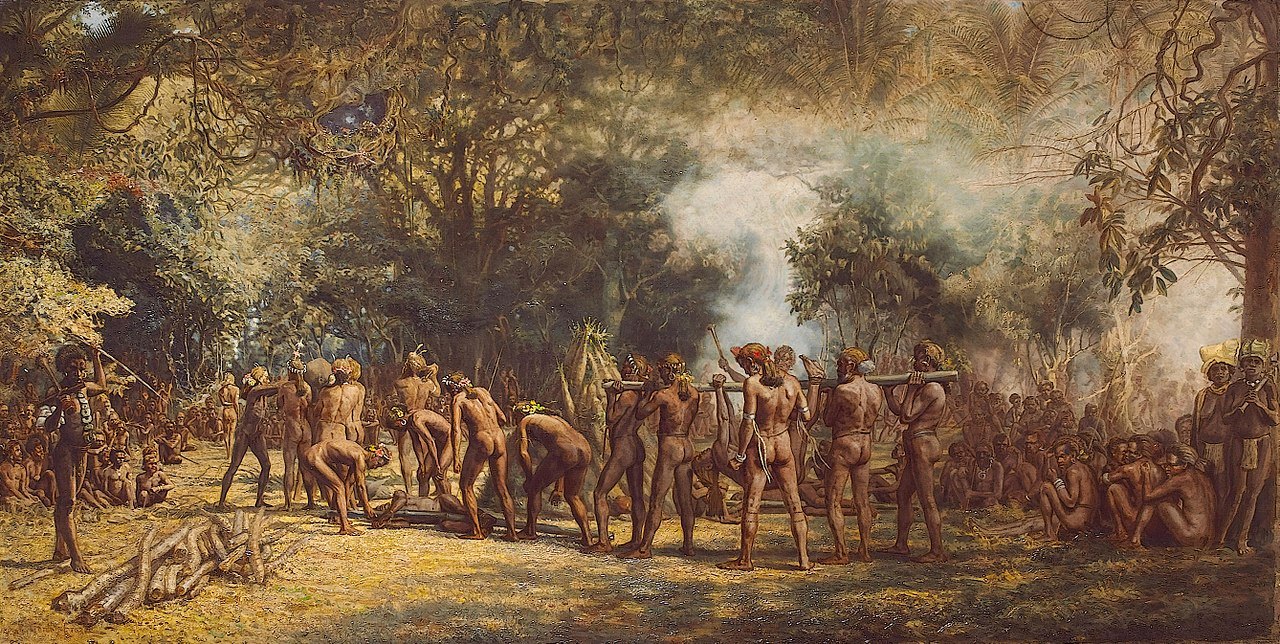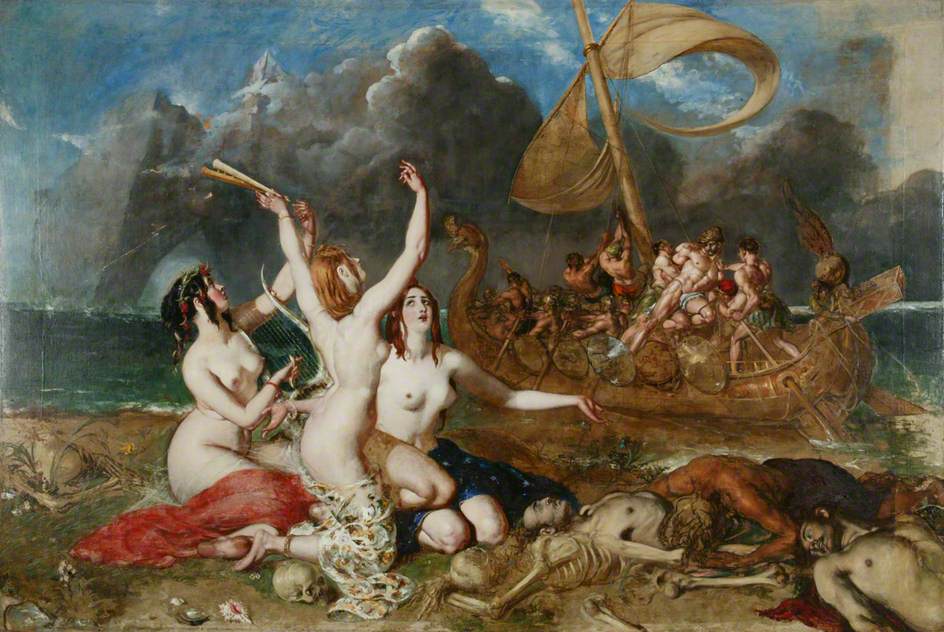Saint Augustine of Hippo, whose full name was Aurelius Augustinus, was born in 354 AD, in the city of Tagaste, in the Roman North African province of Numidia (now Algeria). He came from a moderately well to do, though religiously mixed, family. His father, Patricius was a pagan, who still adhered to the old gods of Rome, while his mother, Monica, was a devout Christian. Such families were typical of this era, when paganism was in retreat, and Christianity was ascendant.
Despite his mother’s strong influence, Augustine was not baptized a Christian until well into his early thirties. He was an intellectually gifted child and his parents carefully schooled him, so he could secure a good position for himself in the Roman civil service.
At the age of seventeen, his parents sent him to Carthage to study, where he quickly discovered the joys of sex, and he soon fell deeply in love with a woman, whose name we do not know, but who was the mother of his son, Adeodatus. Augustine never married this nameless woman, and she remained his mistress for many years. Such unions were frequent in the 4th century AD.
But his mother’s ambitions for him were not satisfied, and she persuaded Augustine to get rid of his mistress and move to Italy, where he could secure a good career for himself, which was the reason why he had been so carefully schooled.
Augustine listened to his mother, and headed for Italy, with his mother and his son. The three of them arrived in Milan, which was the administrative capital of the Roman Empire at that time, and Augustine took up teaching. His mother soon had him engaged to a girl half his age, who came from a wealthy and well-placed family. Augustine never married this girl, and instead took up with another woman.
In Milan, he fell under the influence of Bishop Ambrose, and the two became good friends. It was in 386 AD that a momentous event occurred in Augustine’s life. He tells us that he heard a voice that told him to take the Bible and read it.
When he held the Bible, it fell open to a specific passage in the New Testament (Romans 13:13), in which he read that drunkenness and sexual indulgence should be abandoned. This passage had a profound effect on him, and there and then, he decided to convert. It was Bishop Ambrose who baptized both him and his son, Adeodatus.
Not long afterwards, his mother suddenly died, and he went into deep depression, from which he emerged a changed man. He decided to give up sex, leave the woman he was living with, and move back to North Africa with his son, where he would concentrate on being spiritual and contemplative.
He settled near the town of Hippo Regius (now Annaba, Algeria). The townsfolk liked the idea of having a learned man nearby, and they suggested to Augustine that he become their bishop, since the seat was currently vacant.
Augustine refused, but then tragedy struck again. This time his son died for whom he mourned greatly. The townsfolk once again approached him. This time Augustine accepted. The rigorous demands of the position would keep him busy, so he would not think about his son. He was ordained as a priest, in 391 AD, and in 396 became the bishop of Hippo, a position he would hold until his death.
It was a responsibility that he undertook with conviction, and he ministered to his flock with great dedication, especially in the ensuing years of troubling uncertainty when the Roman Empire crumbled away, as one province after another fell to the invading Germanic tribes.
One tribe, the Vandals, who were responsible for the sacking of Rome itself in 410, sailed across the Mediterranean and landed in North Africa, which they quickly overran. And it is said that Augustine died in 430 AD, in his bed, reading the Psalms, as the Vandals began to attack Hippo.
He was buried in the city’s cathedral. In the 8th century, the Longobard king Liutprand, to save them from the Muslims who had overrun North Africa, removed his remains to Pavia, Italy. Augustine’s tomb is now in St. Peter’s Church in Pavia.
Augustine wrote all his life, books, as well as letters and homilies. He wrote in Latin, and his contributions to philosophy and theology are profound. His early works are purely philosophical, while his later writings concentrate solely on religious matters.
After his conversion in 386, he wrote Against the Academics, in which he critiqued skepticism; On Free Choice of the Will, in which he dealt with the existence and problem of evil; The Catholic and Manichean Ways of Life, in which he explored the subject of ethics; On the Teacher, in which he examined concepts of knowledge and language. These works formed the basis of his philosophy.
It was in 401, five years after he became the bishop of Hippo, that he published his Confessions, which is the first work of autobiography in Western literature. This is an account of his riotous early years when he was given to sensual living. But since this was written in his later years, there are many philosophical passages. And in the year 410, the unthinkable happened.
The Vandals, a relatively obscure Germanic tribe, captured Rome, which was known as “the Eternal City.”
This event shook the confidence of the entire Roman Empire, and on everyone’s lips was the question: Why? In answer, Augustine wrote The City of God, in which he reminds Christians that their true city was never Rome; rather their city is heaven itself, which alone is eternal. This attempt to understand a traumatic event also gave Augustine the opportunity to elaborate his political theory. It is his most influential and widely read work.
More than any other thinker, Augustine shaped the medieval mind. He was concerned not simply with philosophical inquiry, but with the construction of Christian wisdom itself. He stated that it was possible to learn about the good, or God, by way of reason. Augustine established the paradigms for a theology of history, which regarded history in its totality.
As well, he set forth a new view of human society – one that was harmonious and whole and in the image of the heavenly city, or heaven. He constructed the first description of utopia, and it would prove to be a rich vein in philosophy, influencing such thinkers as Thomas More, Leibniz, Campanella, and even Karl Marx.



